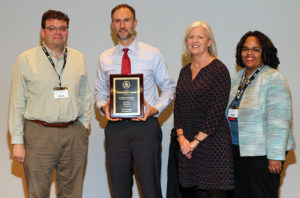The Remediation and Redevelopment Program puts to good use the skills and knowledge of its customers by working together in a collaborative manner through a number of External Advisory Groups (EAG). In fact, it’s one of the core values of the agency. And with funding from the US EPA’s 128(a) grant, the Brownfields and Outreach Section assists these groups with messaging and keeping customers and the public informed.
Now in its 20th year of advising the agency is the Brownfields Study Group (BSG). The study group is one of the oldest EAGs, created in 1998 at the direction of the Governor and State Legislature to evaluate Wisconsin’s brownfields initiatives and recommend improvements, as well as propose additional incentives for brownfields redevelopment. The BSG continues to drive important brownfields policy changes in Wisconsin and among its successes can count the creation of the Site Assessment Grant Program, which awarded more than $18 million to more than 200 communities before it was transferred to a different agency. The group was also instrumental in developing the One Cleanup Program Agreement with Region 5 EPA, the most comprehensive agreement of its kind, which helps expedite cleanups of properties across the state.
Continue reading “External Advisory Groups Help Guide, Shape DNR Policy”

